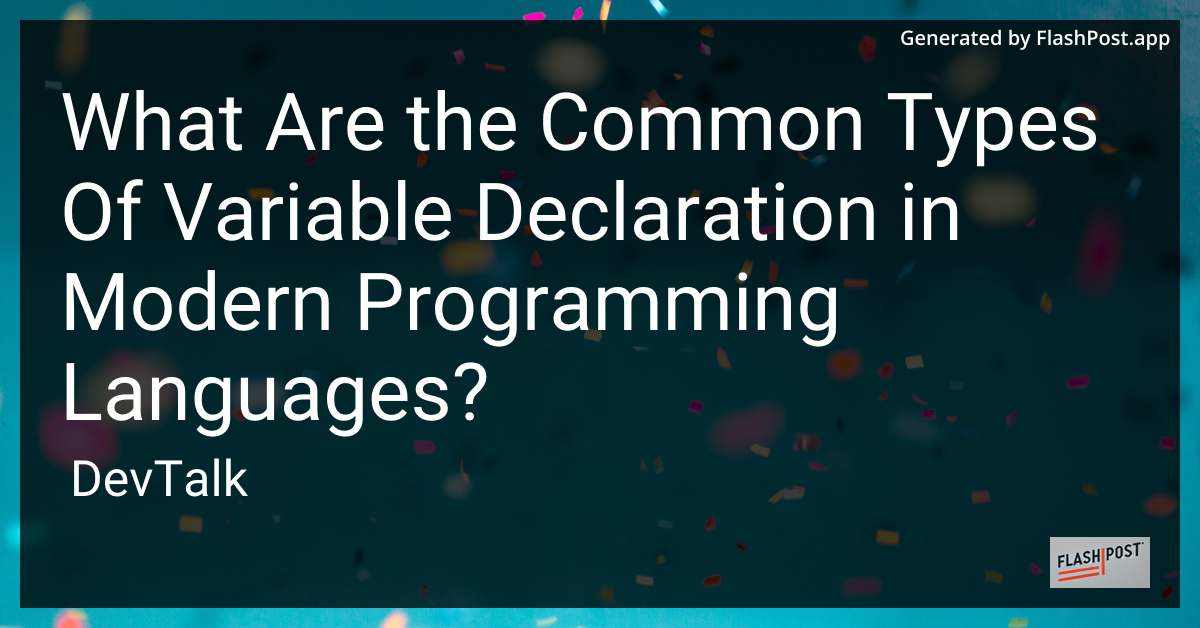What Are the Common Types Of Variable Declaration in Modern Programming Languages?
 # Common Types of Variable Declaration in Modern Programming Languages
# Common Types of Variable Declaration in Modern Programming Languages
In the world of programming, understanding how to declare variables is fundamental.
Each language has its nuances, but they commonly employ a few core types of variable declaration. Whether you're a beginner or a seasoned developer, being familiar with these variable declaration types will improve your programming skills and efficiency. In this article, we explore the common types of variable declaration used across various modern programming languages.
1. Explicit Variable Declaration
Explicit variable declaration is the most straightforward way to declare variables, where the type of the variable is specified. This is common in statically typed languages where type safety is important.
Examples:
- C++/Java:
int count = 10;String name = "John Doe"; - TypeScript:
let age: number = 25;
2. Implicit Variable Declaration
Implicit variable declaration allows the type to be inferred by the value assigned to the variable. This is popular in languages that support type inference.
Examples:
- JavaScript:
let score = 100; // Inferred as a number - Python:
temperature = 22.5 # Inferred as a float
3. Constant Variable Declaration
For values that should not change over the course of a program, constants are used. Declaring a constant ensures the value remains the same, which can prevent errors and improve code maintainability.
Examples:
- Java:
final double PI = 3.14159; - JavaScript:
const API_KEY = '12345';
4. Dynamic Variable Declaration
Dynamic variables are those that can change type during execution. They are mainly supported in dynamically typed languages.
Examples:
- Ruby:
value = "Hello" value = 10
5. Mutable and Immutable Variable Declaration
Mutable variables can be changed after their creation, whereas immutable variables (similar to constants) cannot. Some languages provide special keyword support to differentiate between these.
Examples:
- Kotlin:
var mutableNumber = 5 // Mutable val immutableNumber = 10 // Immutable
6. Variable Declaration with Scoping
Scoping determines the visibility of variables. Languages that support block-scoped, function-scoped, or global-scoped variables let programmers define where a variable can be accessed.
Examples:
- JavaScript (Block Scope with
let,const):{ let localVariable = "I'm block-scoped"; }
Related Links
For those who are interested in exploring more about variable declarations in specific languages, check out these resources:
- PostgreSQL Variable Declaration
- Ruby on Rails Variable Declaration
- Variable Declaration in Delphi
- Scala Variable Declaration
- Programming Variable Declaration Tutorial
Understanding these common types of variable declarations will not only enhance your grasp of the programming languages you are using but also bridge the gap when you tackle a new language. Happy coding!